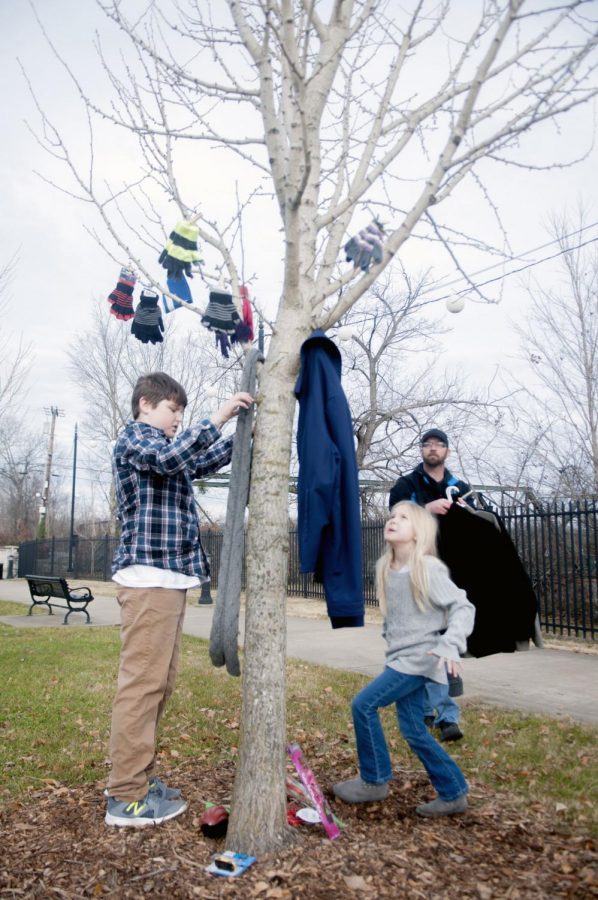The Travel Ban: What is it good for?
March 3, 2017
In the past decade, as Islamophobia has increased, the words ‘Muslim’ and ‘Islam’ have been used more as slurs rather than their intended meaning. The reason behind this would be because people are afraid, and when people are afraid, they hate. An example of this would be the recent Kansas shooting of Srinivas Kuchibhotla, who was Indian. His wife had been nervous about coming to the States due to the violence against foreigners here, but her husband assured her that everything would be okay. Except, really, it wasn’t. Kuchibhotla and a coworker decided to have a beer after work. After watching a rather intense basketball game, the suspect became agitated. Witnesses claimed to hear the suspect yell, “Get out of my country!” The bar patron told him to leave and the suspect did, only to come back moments later to start firing. Kuchibhotla died while his coworker and the bar patron were only mildly injured.
This blind hatred could be a direct byproduct of the 9/11 attacks and ultimately, the war on terrorism. Of course, this is understandable. Who wouldn’t be shaken up after something like that? Yet, when it allows hundreds of hate crimes to be committed against these people; when it allows our own President Trump to ban everyone from seven countries because they were born in a particular country or they happen to practice a certain religion without much fuss from half the country…that’s when it becomes a problem.
If you don’t know what the travel ban is, it’s an executive order that President Trump signed in on January 27th, his seventh day in office. This executive order bans citizens from seven predominantly Muslim nations from entering the United States. The countries affected are: Iran, Iraq, Sudan, Libya, Somalia, Yemen and Syria–which has been banned indefinitely. It also bans the Refugee Admissions Program for 120 days. However, it was temporarily suspended by judges due to it being considered unconstitutional. The revised edition of the executive order is planned to be released soon.
Why do people move to different countries? Well, they move for many reasons; to find better work, to be close to family, to have better quality of life, to escape political persecution and most importantly, war. Somebody who is forced to leave their country due to war and persecution is called a refugee. The Syrian civil war started March 11, 2011, almost six years ago to the day. Since the war began, an estimated 400,000 Syrians have been killed. As of December 2016, 4.81 million Syrians have also fled the country. That means that 4.81 million people have been forced to leave their home and have become refugees as they look for a new country to call home.
Okay, so imagine you were one of these refugees. You currently live in a one-room apartment with your spouse, three children, and two other people. Unfortunately, earlier that year your home got destroyed by bombs being dropped onto your neighborhood. You desperately need to get out of Syria; you need to find a safe place for you and your family.
Where do you go?
That’s the big question. For starters, you could go to your surrounding countries: Iraq, Lebanon, Israel, Turkey, and Jordan. Except no, that’s not a good idea.. You want to put your family somewhere far from Syria, far from any traces of the war that’s hurt your country for years. So, your next idea is Europe: France, Britain, Germany–the possibilities are endless here. It’s a good place, possibly even safe but…it’s crowded here, too many people with too little space. You think about going to the United States.
Ah, America.
You’ve heard about America. Considered the land of opportunities, this country could give you and your family the safety you’ve yearned for. It’s the land of the free, after all. So, you make the big move across the Pacific. You can’t afford to take a plane, so you go by boat. The trip is over a month long. You get there and after all this time, you aren’t afraid of what’s to come. It’s only when you realize that you’re not allowed in is when your dreams come tumbling down.
You’re not allowed in because the President has made allegations that you’re a terrorist.
There are many differing opinions on this matter, but the one that’s most frequently heard is that the ban is in place to protect the country from radical Islamic terrorists. President Trump’s executive order claims that, “Numerous foreign-born individuals have been convicted or implicated in terrorism-related crimes since September 11, 2001 including foreign nationals who entered the United States…or who entered through the United States refugee resettlement program.” This is not true.
Since 9/11, there have been no reports of terrorists who came from the banned countries killing Americans.This brings on another point. Only 16% of the terrorists who planned to attack Americans came from countries outside the ban–even the 9/11 attackers were mainly Saudi Arabian.The other 84% were citizens and permanent residents of the United States. The terrorists that come from inside the States are called homegrown terrorists. An example of a homegrown terrorist would be Omar Mateen, the man who shot up the Pulse nightclub on June 12, 2016. Dubbed the ‘Orlando Shooter’, he had been born to an immigrant couple in the great city of New York. He killed 49 people and injured 53. The FBI released Mateen’s 911 calls in which he pledged allegiance to the Islamic state and claimed the shooting was retribution for airstrikes against the terrorist group.
The ban is not only giving refugees and immigrants one less place to go, it’s also unconstitutional. It directly goes against the Due Process clause, which states that no one shall be “deprived of life, liberty, or property without due process of law.” It states this in the Fifth Amendment as well as the Fourteenth Amendment. It also violates the Equal Protection clause. This clause prohibits the United States from denying any person within its territory the equal protection of the laws. This means that a state must treat an individual in the same manner as others who are in similar conditions. Most importantly, though, it violates the Take Care clause. The Take Care clause states that, “Above all, the President, in exercising these executive powers, is still subject to the law.” This means that the Supreme Court sees that it’s the “duty of the President to see that the laws be executed is a duty that does not go beyond the laws or require him to achieve more than Congress sees fit to leave within his power.” Because of this, six federal courts have temporarily barred the executive order.
Though for now, there technically isn’t a ‘ban’ as it’s been temporarily barred from being put into place. The revised edition has been delayed yet again and it’s uncertain when it’ll be established for real. All we know is that he will do it–that much has been made clear, even if it’s the right or wrong decision.


